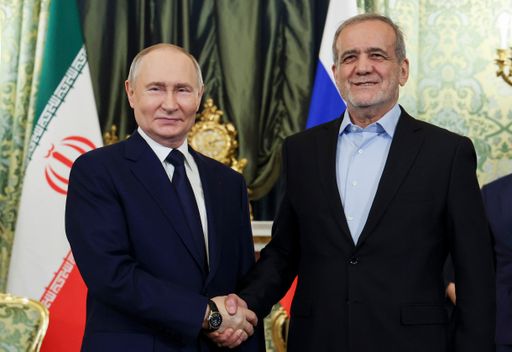Anxiety mounted across Gulf Arab states after Israel briefly claimed on Thursday that it had struck multiple nuclear sites in Iran, including the Bushehr power plant on the Gulf coast, heightening fears of environmental disaster and regional conflict escalation.
The Israeli military later retracted the statement, saying it had been issued “by mistake.” Earlier, the military had announced strikes on nuclear facilities at Bushehr, Isfahan, and Natanz as part of what it described as an intensifying campaign to prevent Iran from acquiring nuclear weapons — an ambition Tehran firmly denies.
The prospect of any strike on Bushehr, Iran’s only operational nuclear power plant, has already raised particular concern among Gulf nations due to its proximity to their shores and critical desalination infrastructure.
Following the reports of the Israeli attack, which were retracted later, Russia urged Israel to immediately halt air strikes on the facility, where over 200 Russian engineers are currently stationed.
The Bushehr plant was built by Russia’s Rosatom and uses Russian fuel that Moscow then takes back when it is spent to reduce nuclear proliferation risk. Earlier in the day, Russian media reported that dozens of Russian specialists were evacuated from the plant, citing a statement from Rosatom CEO Alexey Likhachev.
Earlier on Wednesday, Russian President Vladimir Putin said that a solution to the conflict was possible and insisted Israel had assured Moscow it would protect Russian engineers at the Bushehr plant.
He warned against actions that could provoke further consolidation around Iran’s political leadership and emphasised the need for talks that respect both Israel’s security and Iran’s civilian nuclear ambitions.
Putin also dismissed suggestions of providing Iran with military aid under a recent strategic pact, stressing the agreement does not cover military cooperation.
Russian foreign ministry spokesperson Maria Zakharova on Thursday reiterated a warning to the United States not to get involved militarily in the Israel-Iran conflict, saying this would have unpredictable and negative consequences.

Gulf states on high alert
Earlier, the Gulf Cooperation Council (GCC)—comprising Bahrain, Kuwait, Oman, Qatar, Saudi Arabia, and the United Arab Emirates—has activated emergency measures to prepare for potential radiological or environmental fallout.
Bahrain has readied 33 shelters and tested nationwide sirens, while in Oman, authorities circulated safety guidance urging residents to seal homes and stay indoors in case of contamination, according to media reports.
Regional leaders have voiced alarm over what they describe as reckless military actions that risk devastating shared waters and critical resources.
The UAE’s foreign minister, Sheikh Abdullah bin Zayed, warned against “miscalculated actions that could extend beyond the borders” of Iran and Israel, while Qatar highlighted fears of “uncalculated strikes” that could endanger Gulf states' water supplies.
Almost 60 million people across the Gulf rely on desalinated water from the Gulf. A significant radiological leak could contaminate this source, endangering drinking water, agriculture, and marine life.
Qatar’s Prime Minister Mohammed Al Thani previously warned that such a scenario could leave countries like Qatar, Kuwait, and the UAE without usable water in just three days.
IAEA cautions on contamination
On Monday, the International Atomic Energy Agency (IAEA) confirmed damage at Iran’s main nuclear enrichment facility in Natanz and at a research site in Isfahan, although it reported no change in radiation levels outside the sites so far.
IAEA chief Rafael Mariano Grossi said there is a risk of both radiological and chemical contamination inside Natanz due to the release of hazardous uranium hexafluoride gas—lethal if inhaled or if it contacts skin.
Grossi called for urgent technical information from Iran to assess the situation accurately and warned that continued military escalation could lead to a dangerous radiological release.
“This threatens lives, the environment, and delays diplomatic efforts to ensure Iran does not acquire nuclear weapons,” he told the IAEA board.















